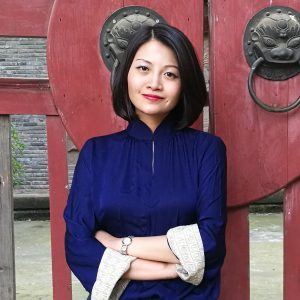
Kunbing Xiao
NYU Shanghai and Fudan University
Biography
Kunbing Xiao is Associate Professor of Anthropology at Southwest Minzu University, Chengdu, Sichuan. She is the CGA-ARC postdoctoral for the 2017-2018 academic year. Kunbing Xiao’s research interests include historical anthropology, sensory anthropology, cultural heritage studies, and particularly the history of tea trade in modern China.Kunbing Xiao received her PhD degree in Ethnology and Anthropology Department from Xiamen University. Her doctoral dissertation is about the tea trade in northern Fujian province from 17th-19th centuries in the context of modern globalization. From 2014-2015, she was an ArgO-EMR research fellow affiliate to Institute of Social and Cultural Anthropology at the University of Oxford, where she completed the research on the practice of Chinese tea in the cultivation of personhood and well-being.
「 The Transmission of Bohea: Chinese Black Tea in International Tea Trade (17th-19th Centuries) 」
Bohea, the Chinese tea originating from Wuyi Mountain, was the major tea product that China exported to Western countries from the seventeenth to the nineteenth century. The pronunciation of Bohea comes from the southern Fujian dialect, rather than from its actual place of origin in northern Fujian nor from Mandarin. Restrictions on maritime trade were lifted by the Qing government in 1684, and this resulted in Xiamen becoming one of the four ports open to foreigners. It was the Western merchants who bought tea in Xiamen that drew from the local dialect the name of Bohea to refer in general to teas originating from Wuyi. Therefore, the term Bohea clearly embodies both the Eurasian connection and the role of the market that went into shaping it as a commercial product of historical significance within a world of transnational trade networks. The connotation of Bohea varied according to the specific context. Ever since the late seventeenth century, Bohea had successively been known as the earliest black tea, as the superior Chinese tea, as the general name of Chinese tea, and finally as the inferior Chinese tea. The transmission of Bohea reflected the changing trends of Chinese tea export on the international market, as well asthe influences from other emerging tea-producing countries. Additionally, the oral evidence acquired through my fieldwork on Wuyi Mountain points to the historical complexities that have gone into shaping this transnational product: The complex interrelationship amongst the related and sometimes overlapping terms Bohea, Lapsang souchong 和 Wuyi black tea—each with slightly different implications and emphases— clearly highlights the reconstruction of locality within the long distance international trade.



